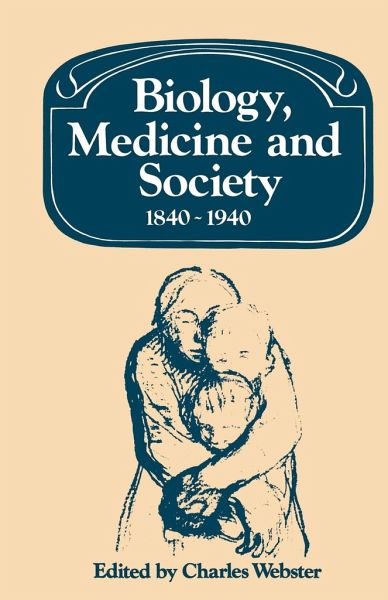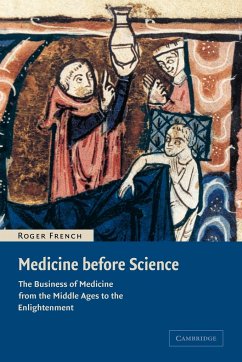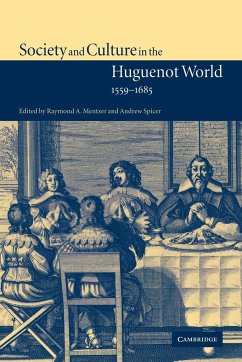
Biology, Medicine and Society 1840 1940
Versandkostenfrei!
Versandfertig in 1-2 Wochen
54,99 €
inkl. MwSt.

PAYBACK Punkte
27 °P sammeln!
The authors describe different historical aspects of the interrelationship of technical experience and social policy in the fields of health, education and social welfare.During the period 1840-1940 biology and medicine were transformed, and took on major implications for social amelioration and population growth. New biological disciplines such as genetics and psychology consciously used scientific explanation to redefine the life of the individual. This volume originates from a Past and Present conference on 'The Roots of Sociobiology' held in 1978 and incorporates the results of recent rese...
The authors describe different historical aspects of the interrelationship of technical experience and social policy in the fields of health, education and social welfare.
During the period 1840-1940 biology and medicine were transformed, and took on major implications for social amelioration and population growth. New biological disciplines such as genetics and psychology consciously used scientific explanation to redefine the life of the individual. This volume originates from a Past and Present conference on 'The Roots of Sociobiology' held in 1978 and incorporates the results of recent research on problems in the social relations of the biological sciences. The authors describe different historical aspects of the interrelationship of technical experience and social policy in the fields of health, education and social welfare. Insight is provided into contemporary debates on physical and racial deterioration, the sources and distribution of intelligence, the application of evolutionary biology to social and political theory, and the analysis of human societies. The authors raise issues of topical interest, such as the emergence and influence of eugenics, the origin and impact of intelligence testing, the relationship between eugenics, genetics and evolutionary theory, and the causes of the twentieth-century reduction in infant and maternal mortality. The area of coverage is Britain, America and Germany. The introduction provides a review of recent research on the social relations of biology and medicine.
Table of content:
Preface and acknowledgements; Introduction Charles Webster; 1. Women's health and the women's movement in Britain: 1840-1940 Brian Harrison; 2. Working-class mothers and infant mortality in England, 1895-1914 Carol Dyhouse; 3. Theories of the cell state in Imperial Germany Paul Weindling; 4. Innate character in animals and man: a perspective on the origins of ethology John R. Durant; 5. Genetics in the United States and Great Britain 1890-1930: a review with speculations Daniel J. Kevles; 6. Eugenics and class G. R. Searle; 7. Sociobiologies in competition: the Biometrician-Mendelian debate Donald MacKenzie; 8. Psychologists and class Bernard Norton; 9. Measuring intelligence: English local education authorities and mental testing 1919-1939 Gillian Sutherland; Index.
During the period 1840-1940 biology and medicine were transformed, and took on major implications for social amelioration and population growth. New biological disciplines such as genetics and psychology consciously used scientific explanation to redefine the life of the individual. This volume originates from a Past and Present conference on 'The Roots of Sociobiology' held in 1978 and incorporates the results of recent research on problems in the social relations of the biological sciences. The authors describe different historical aspects of the interrelationship of technical experience and social policy in the fields of health, education and social welfare. Insight is provided into contemporary debates on physical and racial deterioration, the sources and distribution of intelligence, the application of evolutionary biology to social and political theory, and the analysis of human societies. The authors raise issues of topical interest, such as the emergence and influence of eugenics, the origin and impact of intelligence testing, the relationship between eugenics, genetics and evolutionary theory, and the causes of the twentieth-century reduction in infant and maternal mortality. The area of coverage is Britain, America and Germany. The introduction provides a review of recent research on the social relations of biology and medicine.
Table of content:
Preface and acknowledgements; Introduction Charles Webster; 1. Women's health and the women's movement in Britain: 1840-1940 Brian Harrison; 2. Working-class mothers and infant mortality in England, 1895-1914 Carol Dyhouse; 3. Theories of the cell state in Imperial Germany Paul Weindling; 4. Innate character in animals and man: a perspective on the origins of ethology John R. Durant; 5. Genetics in the United States and Great Britain 1890-1930: a review with speculations Daniel J. Kevles; 6. Eugenics and class G. R. Searle; 7. Sociobiologies in competition: the Biometrician-Mendelian debate Donald MacKenzie; 8. Psychologists and class Bernard Norton; 9. Measuring intelligence: English local education authorities and mental testing 1919-1939 Gillian Sutherland; Index.






![Siebenbürger Wochenblatt (1849-1944: Kronstädter Zeitung).(hrsg.: Johann Gött.) 1848. 1849. 1853-1871. 1940-1944. [nebst Beil.] [mehr Nicht Vorh.] Cover Siebenbürger Wochenblatt (1849-1944: Kronstädter Zeitung).(hrsg.: Johann Gött.) 1848. 1849. 1853-1871. 1940-1944. [nebst Beil.] [mehr Nicht Vorh.]](https://bilder.buecher.de/produkte/71/71714/71714619n.jpg)







